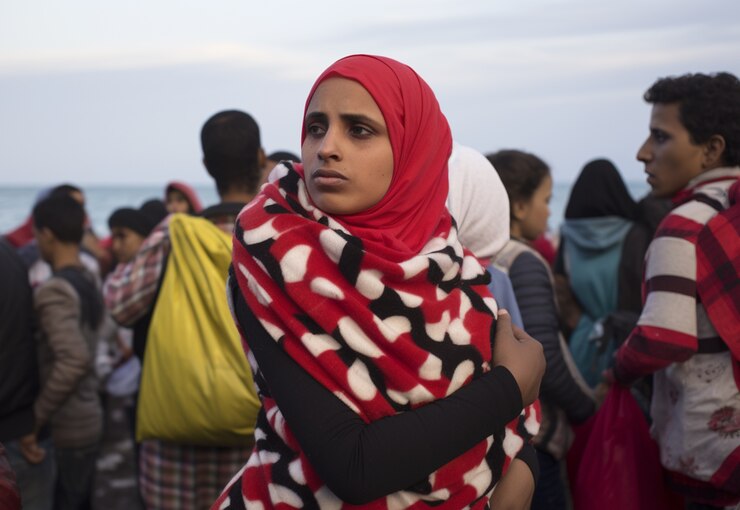As the geopolitical landscape of Syria continues to shift, Syrian refugees in Turkey find themselves at a crossroads, facing difficult choices about their future. The recent developments surrounding the downfall of Syrian President Bashar al-Assad have sparked mixed reactions among the over 3.7 million Syrian refugees currently residing in Turkey. While some refugees view these changes as a glimmer of hope for the possibility of returning to their homeland to help rebuild, others remain cautious, uncertain about Syria’s long-term stability and security.
The Context of the Syrian Refugee Crisis
The Syrian civil war, which erupted in 2011, has displaced millions of people, with Turkey becoming the largest host country for Syrian refugees. Over the years, the conflict has ravaged the country, leaving behind a humanitarian crisis marked by destroyed infrastructure, widespread poverty, and a deeply divided society. Despite the military and political gains made by Assad’s regime, Syria’s future remains precarious, with the country grappling with economic challenges, ongoing regional instability, and the lingering impact of the war.
For many refugees, the idea of returning to Syria has always been tied to the hope of seeing their homes and communities rebuilt. The downfall of Assad has fueled celebrations among some, particularly those who were opposed to his regime. For them, this moment represents an opportunity to return and play a role in the reconstruction of a post-Assad Syria. However, this optimism is tempered by the harsh realities on the ground.
A Divided Response: Return or Stay?
The decision to return to Syria or remain in Turkey is far from straightforward. For those hopeful of Syria’s recovery, the idea of contributing to their country’s rebuilding process is a compelling motivator. These refugees, often from areas once controlled by opposition forces, envision a Syria free from the oppressive rule of Assad, where they can help restore peace and stability. However, this sentiment is not universally shared.
Many Syrian refugees remain wary of returning, citing the country’s ongoing instability and the uncertain political environment. Despite the symbolic weakening of Assad’s regime, large parts of Syria remain under the control of foreign powers, including Russia and Iran, and various opposition factions. The risk of continued violence, lawlessness, and the difficulty of securing basic services in post-war Syria have made the prospect of returning too risky for many.
Moreover, even for those who are eager to return, the journey is not simple. The Syrian government has often been accused of retaliating against returnees, particularly those who were involved in opposition activities during the war. Refugees fear that their safety could be compromised, making return not just a logistical challenge, but a matter of personal security.
Challenges in Turkey
For those opting to stay in Turkey, the challenges are no less significant. Syrian refugees have faced increasing pressure due to economic hardship, integration difficulties, and rising anti-refugee sentiment in Turkey. While Turkey has provided refuge to millions of Syrians, the economic toll of hosting such a large population is being felt, and tensions between refugees and local communities have escalated.
Furthermore, the Turkish government’s stance on refugee policies has evolved, with discussions surrounding the repatriation of Syrians becoming more prominent. Refugees in Turkey face the complex task of navigating their status in a country where their future is uncertain. Many refugees are concerned about their long-term prospects, particularly in terms of employment, education, and their ability to integrate fully into Turkish society.
The Future of Syrian Refugees: A Complex Decision
The fate of Syrian refugees remains intricately linked to the political and security dynamics of Syria. The decisions of whether to return or stay will depend on the evolving situation in Syria, which is far from predictable. A comprehensive peace agreement, effective governance, and reconstruction efforts are essential for creating the conditions that would make it safe for refugees to return. However, without these assurances, the risks remain too high for many refugees, who may choose to remain in Turkey or seek asylum in other countries.
The Turkish government, international organizations, and Syrian diaspora communities face a significant challenge in supporting refugees while navigating the complex realities of the conflict in Syria. As the situation unfolds, the choices faced by Syrian refugees will continue to be shaped by a combination of hope, fear, and the unpredictable course of Syria’s future.
Conclusion
As Syrian refugees in Turkey stand at a crossroads, their decisions reflect broader uncertainties about Syria’s political and security future. While some are hopeful for the possibility of returning to a post-Assad Syria, many remain cautious, aware of the challenges that still lie ahead. The international community must continue to provide support to both refugees and the regions hosting them, while also focusing on long-term solutions that address the root causes of displacement and the reconstruction of Syria. The future for Syrian refugees remains uncertain, but their resilience and the choices they make will shape the trajectory of Syria’s recovery and their own futures.
Image by freepik



